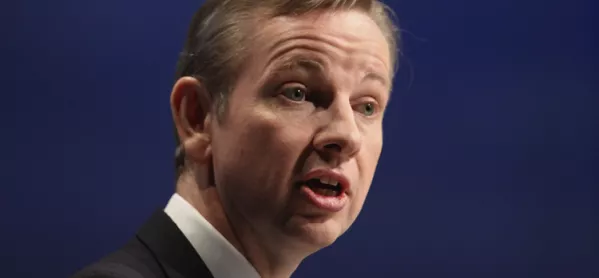- Home
- ‘So how can we take the politics out of education?’
‘So how can we take the politics out of education?’

Surely I’m not alone in noticing that awkward questions are increasingly being asked about the effect decades of politically motivated change has had on schools, teachers and children.
Browse the UK government’s petitions website and you will find two petitions challenging the policy to convert all schools to academies, a third demanding that the education secretary be a qualified teacher with many years of experience and a fourth calling for the government to consult a randomly selected range of teachers from across the UK whenever it wants to make changes to education policy. Clearly there are increasing numbers of people who are dissatisfied with the status quo; in essence, with the way education is thought of and managed by the main political parties.
If 10,000 people sign your petition, a civil servant might be tasked with drafting a written response. What joy. So 100,000 sign and you may even get to watch a debate in Parliament. I can barely wait. The e-petition was, of course, the ingenious brainwave of politicians seeking to enhance their authority while creating the impression that they were being more accountable. So how do you take the politics out of education? I’m more than happy to give this dauntingly stubborn ball a shove, and anyone who wants to add a shoulder or two is most welcome.
You start by asking politicians to understand what world-class schools actually look like. Firstly, no two are ever the same. So politically driven school improvement efforts that rely on scaling up strategy, leadership or generic branding miss the point entirely. Great schools forced to take on the liability of a poor leader chew them up and spit them out in a matter of years and then continue on to be great schools because their brand is far more powerful than any individual who holds it in trust. Significantly, the same can’t be said for high-street retailers, energy providers or car manufacturers. Politicians enamoured of business, and those obsessed with innovation, repeatedly fail to appreciate that world-class schools have both longevity and stability in their favour and so one of the things guaranteed to stop any good school trying to gain world-class status from succeeding is the constant cycle of interference, masquerading as change, that politicians subject them to.
‘Trivialising education’
Secondly, you start by being brutally honest about where we are as a nation and understanding that looking to Ofsted, international research or NGOs for metrics will only reveal the most basic things. World-class schools deliver so much more than exam results or anything any researcher I’ve ever worked with had talent enough to imagine, or measure. Graphs and figures might provide politicians with comfort blankets that are easily traded, but they tell nothing like the whole story. A bit like those comic book editions of Shakespeare’s plays some teachers give to children they patronise: trivialising something extraordinarily sophisticated.
Politicians, and the advisers who rely on graphs and stats in this lazy manner, belittle and undermine good schools with ambition to be better. And I think we have a lot of good schools in this country that are struggling to become world-class. They know about good classroom teaching and do their damndest to deliver it consistently, but because of political interference and dependency, which comes from inside the profession as well as out, they struggle to do all the additional social, behavioural and none-curricular things that make the teachers who work in them and the children who learn in them, proud of their school. As a nation we have gradually and repeatedly looked to schools to do things they are neither designed nor able to do. If you’re a teacher, you won’t need me to list them, and other people have drawn attention to this impossible mission creep too. Perhaps government should ask all pharmacists to deliver adult education sessions about substance abuse for free, or insist every ironmonger drafts a policy on knife crime?
The litmus test of any strong school is that question of pride. If the children don’t want people to know they go there and staff prefer not to mention it as their place of work, then whatever your value add or exam results might claim, you have a weak or underperforming school. Schools are defined by the communities that feed them, which is why politicians who are serious about school improvement start with families, parents and everything that happens before a child ever sets foot in a school.
Finally, schools, their leaders and teachers need to stop accepting the impossible demands placed on them by many politicians. Instead of allowing their generosity and selflessness to be exploited, they should make it clear where the limits of their expertise are and insist that other experts - mental health advisers, social workers and, yes, even politicians - pick up the baton that is so often foisted on teachers. Schools are not a utilitarian’s dream tool and they cannot change society at will. That idea was pursued by a previous administration whose grasp of world-class schooling was so poor, it believed schools resided in their buildings and set about erecting lots of shiny new ones insisting they would have an alchemical power to transform their communities.
Joe Nutt is an educational consultant and author
Want to keep up with the latest education news and opinion? Follow TES on Twitter and like TES on Facebook
Keep reading for just £1 per month
You've reached your limit of free articles this month. Subscribe for £1 per month for three months and get:
- Unlimited access to all Tes magazine content
- Exclusive subscriber-only stories
- Award-winning email newsletters



